How Typeform vs. Elementor vs. Instapage stack up against each other
Compare Instapage with Typeform and Elementor to create high-converting landing pages. With personalization, optimization, and collaboration tools, Instapage helps you deliver experiences that drive results.
Get startedSee how Instapage stacks up against the competition
| Feature | Instapage | Other builders |
| Drag-and-Drop Tools | ||
| Conversion-optimized templates | ||
| Manual and AI-powered A/B Tests | ||
| AI content suggestions | ||
| Popups and sticky bars | ||
| Canvas and grid blocks | ||
| Reusable and global elements | ||
| Form and popup builders | ||
| Built-in Heatmaps | ||
| Central analytics dashboard | ||
| Ad-to-page personalization and collections | ||
| Contacts, lists, and email | ||
| Dedicated, full-service CRO experts | ||
| Enterprise-ready platform |
Leading the way in building high-performing landing pages





Why Instapage is the smarter choice for your campaigns
Get everything you need to build, scale, and optimize high-converting landing pages—without coding.
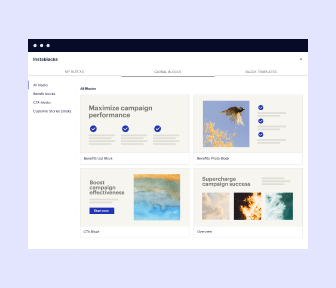
Easier page building without coding
Instapage offers a flexible and seamless page creation experience with a library of 500+ conversion-focused layouts, Instablocks®, a drag-and-drop builder, and AI content generation. With technologies like Thor Render Engine®, you can create on-brand, mobile-responsive landing pages that load quickly and start converting during initial visitor clicks.
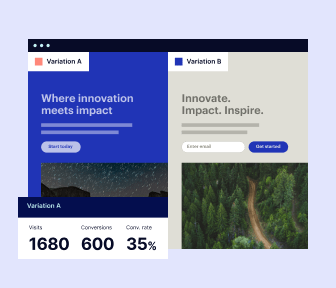
More insights — better results
Instapage lets you see in detail how each landing page experience and variation is performing so you can make targeted changes that boost page conversions. Use heatmaps for a better understanding of on-page activities, run A/B tests and AI-assisted experiments, and then track and evaluate results within robust analytics dashboards.
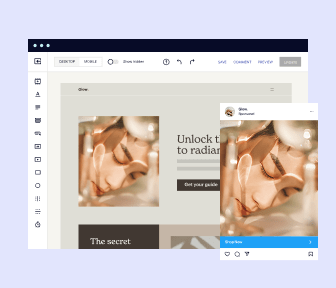
More personalized experiences
Instapage lets you quickly create high-performing landing pages tailored to each of your ad campaigns. Deliver personalized experiences for distinct audiences using dynamic text replacement. Effortlessly align specific advertisements to unique pages with AdMaps. Monitor audience-level metrics using our advanced data tools.
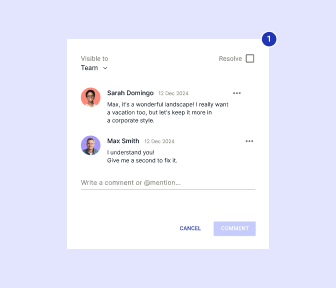
Built-in collaboration
Instapage collaboration capabilities bring your entire team together to speed up the process of landing page review, approval, and launch. No more frustrating and unnecessary revisions or edits scattered across emails. Provide instant feedback, conduct real-time page edits, and securely share your pages with outside stakeholders.
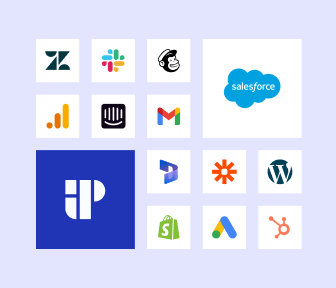
Free up time for your business
Invest time into business growth, not busy work. Launch landing pages faster with reusable forms and templates. Build once, reuse forever.
Explore all integrations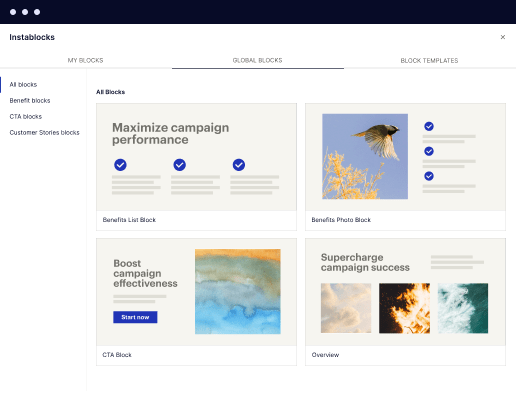
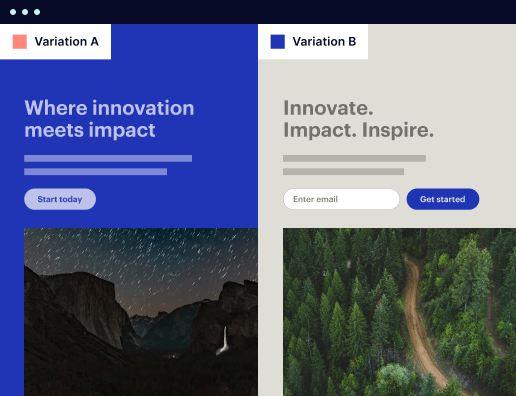
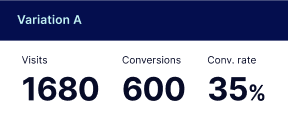
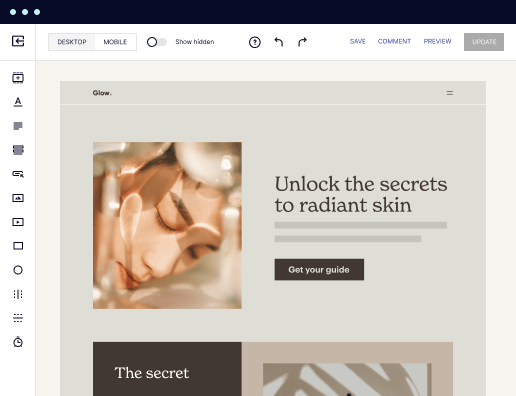

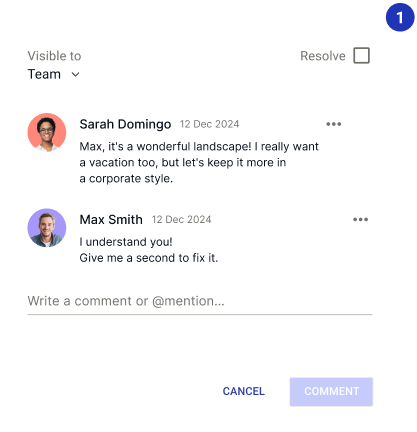

Easier page building without coding
Instapage offers a flexible and seamless page creation experience with a library of 500+ conversion-focused layouts, Instablocks®, a drag-and-drop builder, and AI content generation. With technologies like Thor Render Engine®, you can create on-brand, mobile-responsive landing pages that load quickly and start converting during initial visitor clicks.
More insights — better results
Instapage lets you see in detail how each landing page experience and variation is performing so you can make targeted changes that boost page conversions. Use heatmaps for a better understanding of on-page activities, run A/B tests and AI-assisted experiments, and then track and evaluate results within robust analytics dashboards.
More personalized experiences
Instapage lets you quickly create high-performing landing pages tailored to each of your ad campaigns. Deliver personalized experiences for distinct audiences using dynamic text replacement. Effortlessly align specific advertisements to unique pages with AdMaps. Monitor audience-level metrics using our advanced data tools.
Built-in collaboration
Instapage collaboration capabilities bring your entire team together to speed up the process of landing page review, approval, and launch. No more frustrating and unnecessary revisions or edits scattered across emails. Provide instant feedback, conduct real-time page edits, and securely share your pages with outside stakeholders.
Free up time for your business
Invest time into business growth, not busy work. Launch landing pages faster with reusable forms and templates. Build once, reuse forever.
Explore all integrationsGet started with Instapage in a few steps
-
Create your Instapage account
Start with Instapage by signing up via Google or your email. You'll get access to a free 14-day trial to discover Instapage capabilities. Feel free to cancel anytime during the 14-day trial if you decide that our product is not suitable for your business. -
Build and personalize your page
Create your first landing page from scratch or choose a template from 500+ customizable layouts. Use the drag-and-drop builder to add page elements, fonts, and backgrounds, refine content with AI, or add custom HTML, Javascript, and CSS. -
Review and make edits
Collaborate on page designs and streamline review processes. Invite your team members and stakeholders to review, edit, and provide feedback on your landing page. Collaborate knowing your page is confidential and only accessible to authorized users. -
Publish and track page performance
Publish your page to a domain or custom URL. Connect your pages to the ads you've created and track page performance within the analytics dashboard, run A/B tests and AI experiments, analyze results, and continuously optimize your landing page to maintain high conversions.
Instapage vs. Typeform vs. Elementor – Which One Should You Choose?
Choosing the right landing page builder can feel like assembling a superhero team for your marketing efforts. Just like each superhero has unique powers, each of these platforms brings its strengths to the table. Whether you're looking to create high-converting landing pages, gather user feedback, or design visually appealing sites, the right choice will empower your marketing strategy. In this comparison, we’ll explore how Instapage, Typeform, and Elementor stack up against each other. Buckle up for an informative and enjoyable journey that aims to illuminate your decision-making process. Remember, it’s not just about picking the most popular tool; it's about finding the one that fits your specific needs. (min:200 words)
Meet the Competitors in the Digital Arena
Stepping into the arena, we have three formidable contenders: Instapage, Typeform, and Elementor. Each platform has carved out a niche for itself in the online marketing landscape. Instapage is celebrated for its sophisticated landing page capabilities, primarily aimed at boosting conversions and delivering tailored experiences. Meanwhile, Typeform excels in creating engaging forms and surveys that capture user metrics and preferences. On the other hand, Elementor is a flexible web design tool favored by WordPress users who appreciate its extensive customization options. Together, these rivals offer unique functionalities that can complement different marketing strategies, but how do they fare against one another? (min:200 words)
Round One - Feature Smorgasbord
Template Selection and User Experience
Let’s kick things off by comparing template variety and ease of use. Typeform is known for its visually appealing forms that make data collection engaging, but its primary focus isn’t landing page design. On the opposite end, Elementor shines with a massive library of customizable templates, allowing users to create anything from simple pages to complex layouts on WordPress. Instapage takes the crown when it comes to specialized landing page templates designed to optimize conversions. They are created with best practices in mind, which dramatically improves user experience. Whichever tool you choose, it’s vital to consider your primary goal—whether it is to engage your audience through forms, build an aesthetically pleasing website, or drive leads with effective landing pages. (min:200 words)
Instapage: Your Partner in Conversion Mastery
Instapage isn’t just another landing page builder; it’s a robust tool designed specifically for optimization and conversion growth. Offering unmatched customization options, Instapage allows marketers to create tailored landing experiences that resonate with their audience and drive action. With its A/B testing features, analytics tools, and integrations, users can continuously monitor and enhance their pages based on real user data. Moreover, Instapage’s focus on delivering relevant landing page experiences empowers marketers to reduce costs, grow conversions, and cultivate stronger relationships with their customers through increased brand trust and loyalty. Ultimately, this makes Instapage the ideal choice for those who prioritize conversion effectiveness. (min:200 words)
Round Two - Speed and Performance Showdown
Performance is crucial when it comes to landing pages, as a slow-loading website can lead to high bounce rates. Picture this: waiting in a long line at your favorite coffee shop, your anticipation growing steadily until impatience takes over. If your landing pages load slowly, you risk customers losing interest before they even see your offer. In this round, we'll evaluate how well each platform performs, ensuring you know which one delivers the speed necessary to keep your visitors engaged.
Instapage Advantages:
- Fast loading speeds optimized for high conversion rates
- Robust server infrastructure to handle traffic spikes
- Built-in performance analytics for optimization insights
- CDN support for global reach and consistency
Typeform Advantages:
- User-friendly interface that encourages engagement
- Responsive design ensures quick loading on mobile devices
- Simplicity in form structure leads to faster user interaction
Elementor Advantages:
- Enhanced performance with caching options
- Optimized for speed through lightweight code
- Ability to create tests and landing pages on the same platform
- Responsive templates load quickly on all devices
Reflecting on the performance capabilities of each platform, Instapage leads the pack with its unwavering focus on speed and optimization. Typeform’s strengths lie in engagement and ease of use, while Elementor excels in flexibility and user experience. Ultimately, if low loading times and high performance are critical for your landing pages, Instapage is the go-to option.
Round Three - Navigating Usability and Learning Curves
With all the tools sorted out, let’s dive into how approachable each platform is for newbies and experienced marketers alike. All three platforms have designed their interfaces with user-friendliness in mind. Typeform’s intuitive drag-and-drop functionality reduces the learning curve, making it easy even for those new to online forms. Elementor, known for its flexibility, offers a wealth of resources and community support to help users master its features. Instapage not only provides a straightforward setup but also offers comprehensive tutorials and customer support to enable marketers to capitalize on its advanced features quickly. Thus, regardless of where you begin, each platform has something valuable to offer, guiding you towards expertise. (min:200 words)
Round Four - The Support You Can Count On
When facing challenges, a strong support system can make all the difference. Imagine each platform's customer support team as dedicated sidekicks, always ready to swoop in to assist you. Instapage provides robust support with live chat, email options, and an extensive knowledge base filled with resources. Typeform's customer support is known for being responsive and helpful, just like a friendly neighbor who’s always there to lend a hand. Elementor benefits from a vibrant community forum in addition to its knowledge resources, creating an environment where users support each other. An essential consideration when choosing a platform is the quality of support; knowing people are just a chat away can ease your pressures as a marketer. (min:200 words)
Round Five - Analyzing Pricing Models and Plans
Understanding pricing structures is fundamental in determining which platform holds the best value for your marketing strategy. Instapage operates on a subscription model, offering a range of plans targeted toward different business needs. Typeform has a freemium model that allows users to start for free but may require investment for advanced features. Elementor, while free for basic functionality, has premium plans that unlock more robust features. It’s important to evaluate what you require: whether you are on a budget or wish to access premium tools. This decision will ultimately direct your choice based on your marketing strategy and business goals.
In closing, while all three contenders show promise with their unique strengths, the final choice should align with your specific goals. Whether it’s features, support, or pricing flexibility that matters most, making an informed selection can enhance your landing page strategy significantly. For those seeking superior customization and conversion optimization, Instapage stands out as the best option. Take the opportunity to test its capabilities with a free trial or demo and watch your conversion rates soar! (min:200 words)










